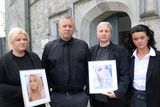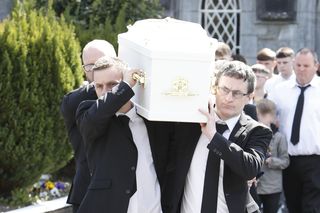'Children put at risk' by HSE decision to shut dental clinic


Young children who need dental treatment are being “put at risk” due to the HSE’s decision to shut down a dental clinic in the heart of Dublin.
The Irish Dental Association (IDA) has said shutting the clinic in the grounds of at St James’s Hospital without putting alternative facilities in place means children have been left waiting for treatment.
The clinic, which is run by the HSE and treats around 3,000 young children a year, was opened in 2003 and catered for children who required multiple dental extractions.
However, the dental group said that the HSE's decision to shut down the clinic without putting an alternative facility in place is a "mistake".
The CEO of the IDA, Fintan Hourihan said the failure to treat these children would pose an unacceptable risk to their health and the possibility of severe dental infection.
“We are calling on the HSE to take action immediately, They must provide suitable alternative facilities and put appropriate funding in place to ensure that children requiring general anaesthesia are not left waiting more than a couple of weeks before receiving treatment.
“Many dentists in the HSE have contacted us to express their extreme concern on behalf of their patients and their families. They are outraged at this latest move and have asked their union to publicly voice these concerns as they themselves are fearful of the consequences of raising their concerns,” Mr Hourihan said.
One of those affected by the closure is Sinead McCrory’s six-year-old daughter. She was referred to the dental clinic from her local HSE clinic in Deansrath, Clondalkin, West Dublin. The youngster had an appointment to have three teeth extracted under general anaesthetic at Dublin 8 clinic on 14 August. However, just two days beforehand, she got a call from the HSE to say that the appointment was cancelled. Ms McCroy was told that they would be getting in touch again in “two to three weeks time” with a new appointment.
However, nine weeks later with her daughter in pain from her teeth, Ms McCrory made a follow-up call to the HSE. She was told that waiting lists were huge and to go back to her local clinic in Deansrath. Her local clinic informed her that the HSE wouldn’t arrange to have the teeth extracted until her daughter was in a lot of pain.
This week, she was told her daughter was on a waiting list and they may try and put something in place for the new year.
It is estimated that between eight to ten thousand children require admission to hospital each year for dental treatments requiring general anaesthesia. Mr Hourihan said delays and waiting times are growing all the time exposing these children to unacceptable risks.
Join the Irish Independent WhatsApp channel
Stay up to date with all the latest news
















